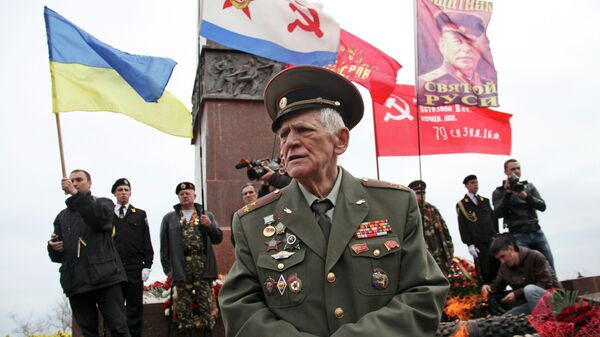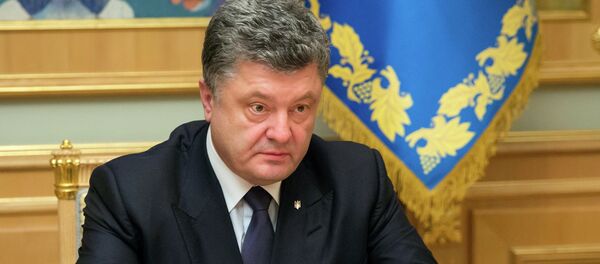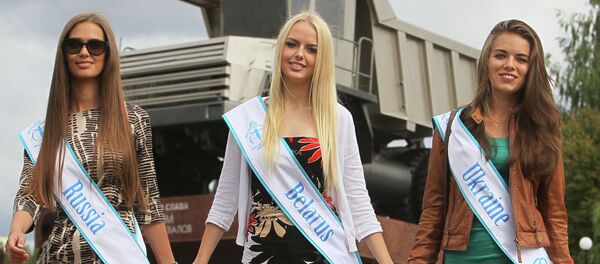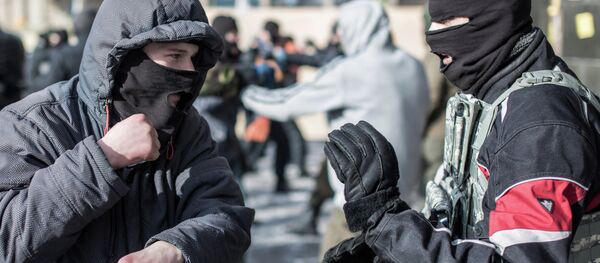Earlier this week, Prime Minister Arseniy Yatsenyuk appealed to the Ukrainian parliament to "adopt these laws, and to finally ban communist and Nazi ideologies as twin brothers opposed to humanity."
The measures referenced by Petrenko were proposed to Ukraine's parliament by the country's Cabinet of Ministers, and developed by the Institute for National Remembrance. The institute's proposals include equating communism to Nazism and the banning of the symbols of each, along with the granting of official recognition to the country's 20th century independence fighters, including members of Second World War-era nationalist armed formations accused of collaborating with Nazi occupation forces. The proposals also recommend celebrating Victory Day on May 8th, and calling the new holiday the Day of Remembrance and Reconciliation, preserving the May 9th holiday out of respect for surviving veterans of the Second World War.
Ukrainian social media commentators weighing in on the proposed bill have raised questions about the many possible ambiguous situations the law will create. OdessaTalk commentator Nikolai Holmov, first clarifying that he was not a supporter of communist ideology, asked what would happen to the Second World War veterans decorated with Soviet medals marching under Soviet army flags, or the more recent veterans of the Afghan war, decorated with similar medals and symbols. The blogger pondered about the future of the country's war memorials, its remaining Lenin statues, and the tens of thousands of Soviet stars and hammer and sickle symbols covering public buildings across the country. If they are to be removed, who is to pay for them? Holmov asked about just how far the bill aims to go, wondering whether communist memorabilia, philosophical works, or the Communist Party itself would also be subject to the ban. Finally, the blogger asked about the unintended consequences to result in the event that the bill is poorly crafted and badly written, which he believes is highly likely.
Communist Witch Hunt
For post-Maidan Kiev, the initiative to ban communist ideology and its symbols is just the next logical step in its bitter and oddly fanatical struggle against the country's communists. Earlier this week, the Ukrainian Security Service summoned Communist Party leader Pyotr Symonenko for questioning over the politician's recent visit to Russia. Authorities noted that they were considering launching a criminal case against him over his comments on Russian television which they say may have amounted to crimes "against the foundations of Ukraine's national security."
Moreover, earlier this year, the Ministry of Justice unsuccessfully appealed to the Kiev District Administrative Court to ban the activities of the Communist Party. Stating that Kiev judges' unanimous refusal to try the Justice Ministry's Case amounted to "connivance to communists' procedural terrorism," Justice Minister Petrenko vowed to "see this trial through to the end."




